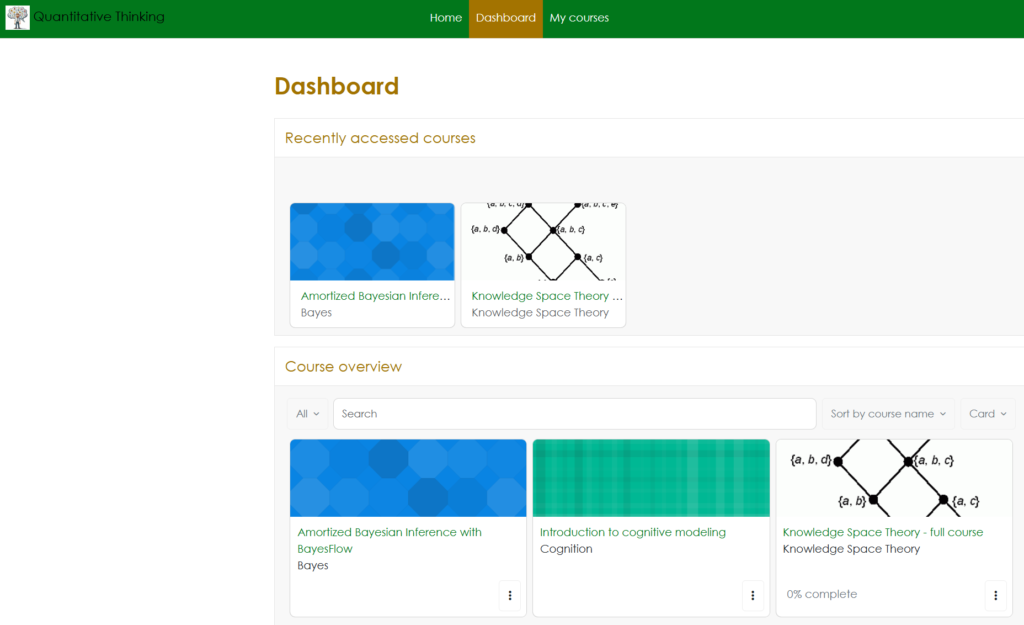Quantitative Thinking
Understanding of, critically reflecting on and communicating of statistical information and quantitative concepts has become a fundamental skill and competence for an informed and active citizen in a modern society. In our projects TquanT and QHELP, we aim to teach these skills and competencies.
Ideally, teaching quantitative thinking would be based on interactive activities supervised by several experts so that a student continuously receives personalized feedback. If however teaching is delivered face-to-face or in a traditional classroom format, then this would be very costly and time-consuming.
We need adaptive and personalized learning tools, available online to a large and diverse group of students. Such tools would promote quantitative reasoning, reflection and communication. It is planned to develop the e-learning system QHelp that allows both adaptive assessment of competencies and skills, and personalized learning. The QHelp platform will merge into a single integrated e-learning platform two important types of tools for e-learning: the massive open online courses (MOOC) and the intelligent tutoring system (ITS).
Open Educational Resources
A main goal of cooperative projects under Erasmus+ is the provision of open educational resources (OER). The OER produced by our group are available through our Moodle server. Access to the system is open (via self-registration).
These OER include especially educational R Shiny apps, presentations, and Learnr tutorials which can also be selected through the tag clouds on the right and below. Furthermore, there is a course on knowledge space theory.
Apps & Presentations
Seminars on Quantitative Thinking
Our group organises annual seminars on quantitative thinking where the OER can be tested. Normally, there are about 50-60 students from a dozen universities meeting for eight days.
Besides lectures and exercises on various topics in mathematical psychology, students work on projects, often programming R Shiny apps which can also be found in the tag clouds above and on the right side.
Partners
| University | Project participation |
|---|---|
| University of Amsterdam (NL) | TquanT, QHELP |
| Jacobs University Bremen (DE) | TquanT, QHELP |
| University of Copenhagen (DK) | QHELP |
| University of Cyprus (CY) | QHELP |
| University of Debrecen (HU) | TquanT |
| University of Glasgow (UK) | TquanT (coord.), QHELP |
| University of Graz (AT) | TquanT, QHELP |
| KU Leuven (BE) | TquanT, QHELP |
| University of Lisbon (PT) | TquanT, QHELP |
| Complutense University Madrid (ES) | TquanT, QHELP |
| University of Oldenburg (DE) | TquanT |
| University of Padua (IT) | TquanT, QHELP |
| University of Tartu (EE) | TquanT, QHELP (coord.) |
| University of Tübingen (DE) | TquanT, QHELP |

